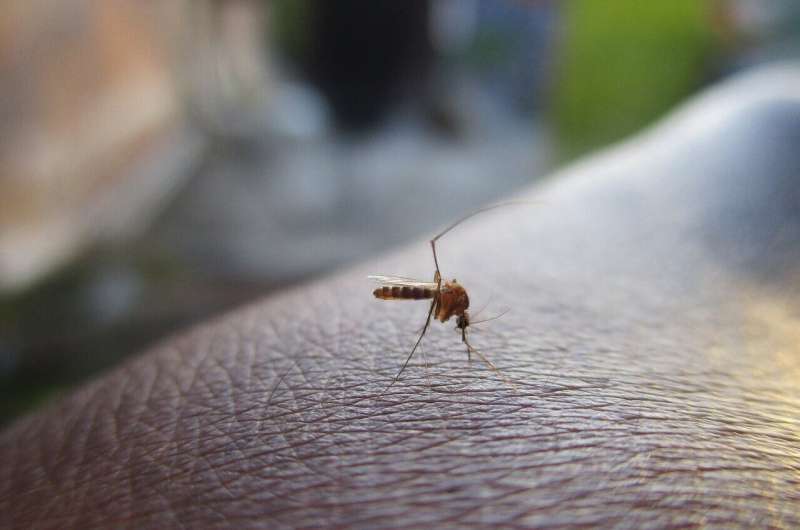Debunking the Overhyped Claims of Magic Mushrooms and Anti-Aging

Recent studies suggest psilocybin from magic mushrooms may promote cellular longevity, but experts warn these claims are overblown and not applicable to humans due to high-dose risks and limited evidence.
How can we extend our lifespan? This age-old question continues to challenge scientists and researchers alike. It is well understood that factors like a healthy diet, regular physical activity, and certain genetic predispositions significantly influence aging and longevity. Additionally, some drugs and medications have shown potential in prolonging life, but much remains uncertain about why some individuals live beyond a hundred when others do not.
Recently, a study has garnered attention by suggesting that psilocybin—the active compound found in "magic mushrooms"—may have properties that extend cellular life and boost survival in aging animals. Researchers observed that human cells treated with psilocin, the metabolite of psilocybin, survived approximately 28.5% longer in laboratory settings. In rodent models, older mice given psilocybin showed increased lifespan, with treated mice living around 25 months compared to 21 months for untreated counterparts. Moreover, these mice displayed signs of slower aging, such as healthier fur and less graying.
However, it is essential to approach these findings with caution. The experiments involved administering extremely high doses of psilocybin—amounts comparable to humans taking more than seven grams of mushrooms, far beyond typical recreational doses. These doses are not only unfeasible for humans but also pose significant health risks, including psychiatric issues like anxiety, paranoia, or more severe long-term effects. Repeated high doses of psychedelics in animals have historically been associated with adverse effects, including behavioral disturbances resembling schizophrenia.
The mechanisms behind psilocybin’s effects include activation of serotonin receptors in the brain and its role as an antioxidant, factors that could promote cell survival. Furthermore, certain serotonin receptors that influence appetite and metabolism might also be involved in its purported anti-aging effects. Yet, crucially, the study did not account for variables such as changes in food intake or weight, which are known to influence lifespan.
Given these considerations, the translation of these laboratory findings to humans remains highly uncertain. The doses used in animals cannot be safely replicated in humans, and the long-term side effects of such high-dose regimens are unknown. While psilocybin continues to be explored for mental health benefits—such as depression and anxiety—the idea of it being a fountain of youth is premature and oversimplified.
The renewed interest in psychedelics has led to relaxed regulations in some regions, with countries like Oregon, Colorado, and parts of Europe permitting or considering medical and even recreational use. This emerging trend raises concerns about misuse and unintended psychological consequences, including persistent anxiety, paranoia, or hallucinations, especially in vulnerable individuals. Historically, irresponsible use of high doses in uncontrolled settings contributed to negative experiences and public skepticism.
In summary, although initial laboratory studies suggest potential in psilocybin for extending cellular lifespan and possibly impacting aging, these findings are far from conclusive or applicable to humans. The current evidence does not support the notion that magic mushrooms are a safe or effective anti-aging remedy. Further rigorous research is needed to understand the risks and benefits before any claims of anti-aging properties can be considered valid.
Stay Updated with Mia's Feed
Get the latest health & wellness insights delivered straight to your inbox.
Related Articles
Exploring the Dual Impact of AI Scribes in Healthcare
An editorial in JMIR Medical Informatics explores the promising benefits and significant challenges of integrating AI scribes into healthcare, highlighting the need for careful, evidence-based implementation to ensure patient safety and clinician well-being.
Biologists Monitor Jamestown Canyon Virus Spread in Pennsylvania Mosquitoes
Pennsylvania mosquitoes have tested positive for Jamestown Canyon virus, a mosquito-borne illness that can cause serious neurological and respiratory symptoms. Researchers emphasize the role of climate change in spreading these viruses and highlight preventive measures to reduce risk.
How Temperature Distorts Gene Activity to Maintain the Body's 24-Hour Clock
New study reveals how gene activity waveform distortion under heat helps maintain our body's precise 24-hour circadian rhythm despite temperature changes, ensuring synchronization with environmental cues.
UK Estimated Annual Costs of Hand and Wrist Injuries in Dog Walkers Surpass £23 Million
A new review estimates that hand and wrist injuries from dog walking in the UK cost over £23 million annually, with older adults and women most affected. The study emphasizes safety practices to reduce injury risks.



